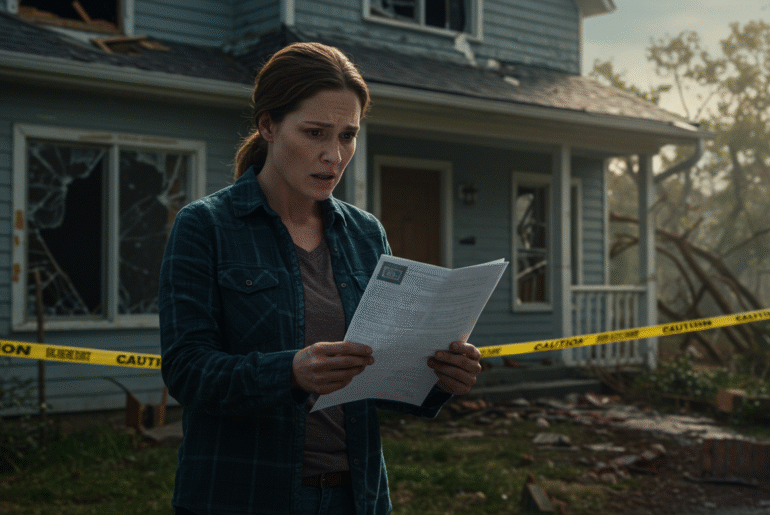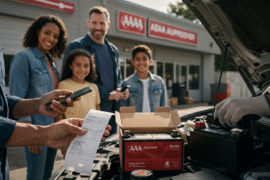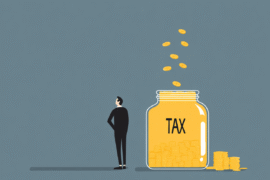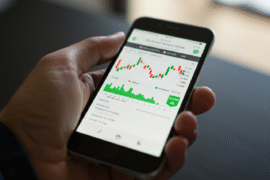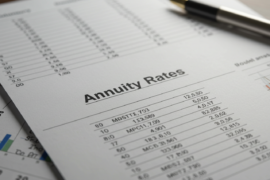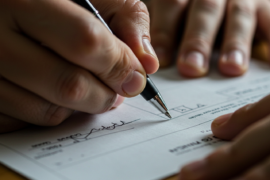This article may contain references to products or services from one or more of our advertisers or partners. We may receive compensation when you click on links to those products or services. Nonetheless, our opinions are our own.
The information presented in this article is accurate to the best of our knowledge at the time of publication. However, information is subject to change, and no guarantees are made about the continued accuracy or completeness of this content after its publication date.
- Protect Yourself From Disaster Scams
- Key Highlights
- Tactics Used By Scammers After Disasters
- Examples Of Scams Affecting Disaster Victims
- How To Verify Legitimate Assistance
- How To Safeguard Personal Information
- Where To Report Disaster-Related Scams
- Common Disaster Scam Types
- Protect Yourself From Disaster Scams
- FAQs
- Final Thought
- Recommended Reads
Protect Yourself From Disaster Scams
Natural disasters can leave you vulnerable, not only to physical damage and emotional stress but also to fraud. Scammers take advantage of chaos, posing as charities, contractors, or even government agencies. Understanding their tactics helps you protect yourself and recover safely.
Key Highlights
- Fraudsters often pose as charities, contractors, or FEMA representatives after disasters.
- Scams include fake websites, pressure tactics, and requests for upfront payments or personal data.
- Verifying assistance and safeguarding sensitive information are critical to staying protected.
Tactics Used By Scammers After Disasters
Scammers exploit disaster victims through fraudulent charities, unlicensed contractors, and impersonation of agencies like FEMA. They may demand upfront payments, request sensitive data, or pressure you into quick decisions. Always verify identities, check credentials, and avoid sharing personal information unless you’re certain of the source.
Examples Of Scams Affecting Disaster Victims
Past disasters reveal how fraud thrives in vulnerable times:
- Hurricane Katrina: Fake websites claimed to represent the Red Cross, stealing donations.
- California Wildfires (2018): Impostors posed as FEMA inspectors and demanded cash.
- Texas Winter Storm (2021): Fraudulent hotel vouchers and heating programs tricked families.
These cases show why vigilance and skepticism are essential after a disaster.
Voted "Best Overall Budgeting App" by Forbes and WSJ
Monarch Money helps you budget, track spending, set goals, and plan your financial future—all in one app.
Get 50% OFF your first year with code MONARCHVIP
How To Verify Legitimate Assistance
- Check websites carefully: Look for errors, odd URLs, or missing contact details.
- Use official channels: Visit sites like fema.gov or disasterassistance.gov.
- Request identification: Confirm with the agency or business before engaging.
- Avoid upfront payments: Reputable services use contracts and phased payments.
- Research charities: Use tools like Charity Navigator, GuideStar, or IRS databases.
How To Safeguard Personal Information
- Never share Social Security numbers, bank data, or passwords with unsolicited contacts.
- Limit disaster-related posts on social media that may attract scammers.
- Place fraud alerts with credit bureaus if you suspect identity theft.
Report scams quickly to protect yourself and others:
- FTC: reportfraud.ftc.gov
- FEMA Fraud Hotline: 1-866-720-5721
- State Attorney General: Consumer protection divisions handle fraud cases.
- BBB: File complaints about fraudulent businesses and scams.
Common Disaster Scam Types
| Scam Type | Red Flags | How To Stay Safe |
|---|---|---|
| Charity Fraud | Similar names to real charities, urgent donation requests | Verify on Charity Navigator or GuideStar |
| Contractor Scams | Upfront payment demands, no license or references | Check credentials and reviews, get multiple quotes |
| Government Impersonation | Unsolicited calls, requests for personal data | Contact FEMA or official agency directly |
| Housing & Rental Scams | Unrealistically low rent, no in-person viewing | Verify with agents, inspect property first |
Protect Yourself From Disaster Scams
Disasters bring hardship, but scams don’t have to add to the burden. By staying alert, researching thoroughly, and reporting suspicious activity, you can avoid falling victim. Protection is not only about safeguarding money but also about ensuring peace of mind during recovery.
FAQs
What are the most common disaster scams?
Common scams include fake charities, contractor fraud, government impersonation, and rental scams. These tactics exploit people’s urgent need for help after disasters.
How can I check if a charity is legitimate?
Use trusted platforms like Charity Navigator, GuideStar, or the IRS Exempt Organization Search. Avoid donating to organizations you cannot verify.
What should I do if someone claiming to be FEMA contacts me?
FEMA does not ask for personal data or payments over phone or email. Verify by contacting FEMA directly through official channels before responding.
How can small businesses avoid scams during recovery?
Seek multiple quotes, confirm licenses, and be cautious of unsolicited offers. Fraudulent services often appear immediately after a disaster.
Where can I report a suspected disaster scam?
You can report scams to the FTC, FEMA Fraud Hotline, your state attorney general, or the BBB. Reporting helps protect others from fraud.
Final Thought
Scammers exploit chaos, but awareness is your best defense. By learning how to recognize red flags, verifying assistance, and reporting fraud, you safeguard both your recovery and your community’s resilience.

Reviewed and edited by Albert Fang.
See a typo or want to suggest an edit/revision to the content? Use the contact us form to provide feedback.
At FangWallet, we value editorial integrity and open collaboration in curating quality content for readers to enjoy. Much appreciated for the assist.
Did you like our article and find it insightful? We encourage sharing the article link with family and friends to benefit as well - better yet, sharing on social media. Thank you for the support! 🍉
Article Title: How to Spot and Avoid Disaster Relief Scams
https://fangwallet.com/2025/09/29/how-to-spot-and-avoid-disaster-relief-scams/The FangWallet Promise
FangWallet is an editorially independent resource - founded on breaking down challenging financial concepts for anyone to understand since 2014. While we adhere to editorial integrity, note that this post may contain references to products from our partners.
The FangWallet promise is always to have your best interest in mind and be transparent and honest about the financial picture.
Become an Insider

Subscribe to get a free daily budget planner printable to help get your money on track!
Make passive money the right way. No spam.
Editorial Disclaimer: The editorial content on this page is not provided by any of the companies mentioned. The opinions expressed here are the author's alone.
The content of this website is for informational purposes only and does not represent investment advice, or an offer or solicitation to buy or sell any security, investment, or product. Investors are encouraged to do their own due diligence, and, if necessary, consult professional advising before making any investment decisions. Investing involves a high degree of risk, and financial losses may occur including the potential loss of principal.
Source Citation References:
+ Inspo
There are no additional citations or references to note for this article at this time.
